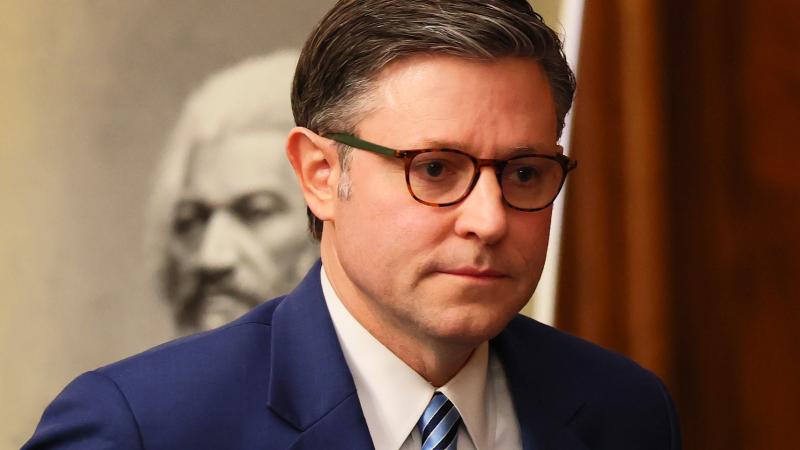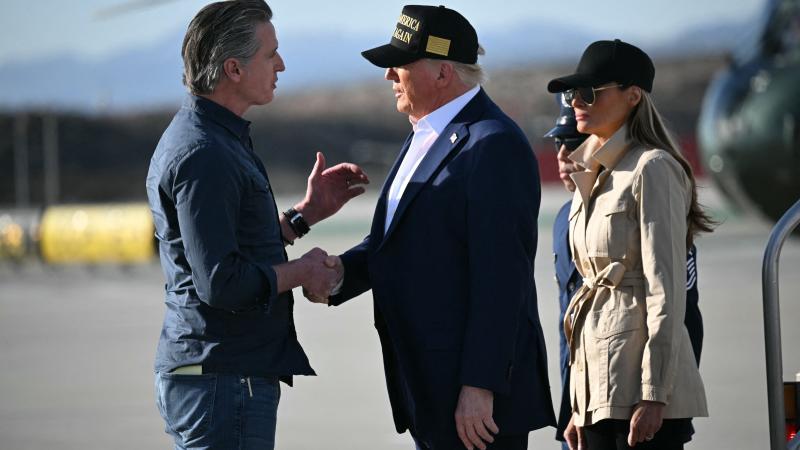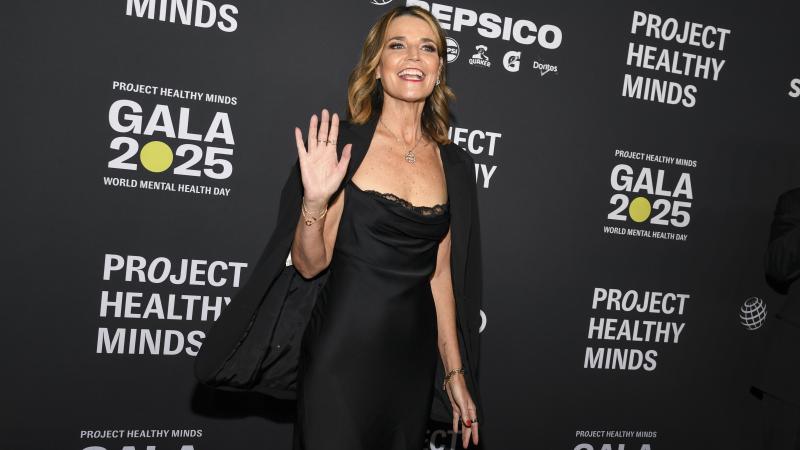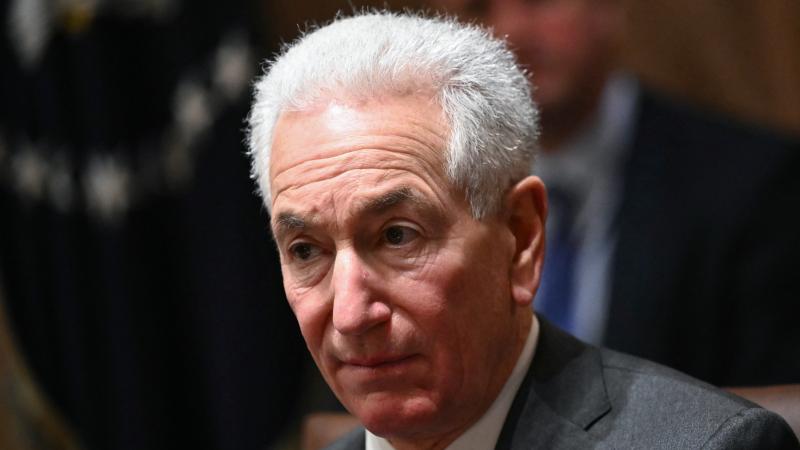Science publisher apologizes for dismissing lab leak as colleagues spurn congressional hearing
Democrats accuse GOP of "setting a dangerous precedent that if Congress doesn't like what you publish you'll be hauled in" as a tool to "prove their conspiratorial narrative."
The editor-in-chief of a major science publisher gave congressional Republicans at a hearing Tuesday afternoon limited ammunition in their efforts to characterize federal officials as unduly influencing COVID-19 origins research, supplementing the ongoing release of communications that suggest the feds have something to hide.
Holden Thorp, who oversees news, research and opinion for the Science family of journals, repeatedly told the Select Subcommittee on the Coronavirus Pandemic that he and his peers fell short by failing to better explain to the public that science is a "work in progress" and that scientists are "opinionated" but should change their minds "when we see new data."
Thorp seemed most embarrassed when panel Chairman Brad Wenstrup, R-Ohio, asked him to account for his tweet mocking the GOP's evidence for the lab-leak theory as "a mediocre episode of Homeland," the Showtime thriller, in the subcommittee's first origins hearing 13 months ago.
Thorp apologized for the "flippant" remark on the platform now known as X. "I've gotten off Twitter and I highly recommend that, because in addition to making my life better I don't have to take my blood pressure medicine anymore," he said.

"Rather than journals being a wealth of information and opinions about the novel virus, of which we knew so little, they helped establish a party line that literally put a chilling effect on scientific research" on COVID origins and scientific communication, Wenstrup said.
But he praised Thorp for "courage" in testifying on "the relationship between scientific journals, the government and peer review," in contrast to the no-shows – Nature's Magdalena Skipper and The Lancet's Richard Horton – who likely would have fared worse.
Communications released by the subcommittee show Nature leaned on the authors of the "Proximal Origins" paper, covertly shaped by then-National Institutes of Health Director Francis Collins and then-National Institute of Allergy and Infectious Diseases Director Anthony Fauci, to completely rule out the plausibility of lab-leak as a condition of publishing it, which they did.
The Lancet published a 2020 letter denouncing "conspiracy theories" that SARS-CoV-2 "does not have a natural origin" without disclosing for 16 months that signatory Peter Daszak's EcoHealth Alliance passed through U.S. funding to the Wuhan Institute of Virology, a suspected leak source whose research could make viruses more dangerous.
Wenstrup on Tuesday also subpoenaed former Fauci adviser David Morens for COVID-related communications from his personal email, which previous messages show he used to communicate with COVID researchers to avoid Freedom of Information Act requests.
Morens also agreed to testify at a hearing on an unspecified date, Wenstrup said.
The escalation followed EcoHealth's release of its NIH communications to disprove allegations of a coverup. Wenstrup said they show Morens telling Daszak that Fauci is "fully aware" of EcoHealth's suspended grant funding and "involved in some sort of damage control," and Daszak agreeing to contact Morens "via gmail from now on" to discuss matters including EcoHealth's "15,000 samples in freezers in Wuhan."
University of Colorado professor Roger Pielke, who specializes in the intersection of science and politics, posted his written testimony after the subcommittee dropped him as a witness due to "a change in the hearing format."
He wrote that Proximal Origin "sits among the most consequential failures of scientific integrity that I have seen in more than 30 years working on science and technology policy."
He also said it constituted "shadow science advice" that usurped what should have happened – "the empaneling of a formal expert committee to investigate COVID-19 origins."
The paper should be retracted because "its authors did not believe the arguments that they were making in the paper" and has "unacknowledged ghost contributors" including Fauci and Collins, whose participation "likely violated" federal policies, Pielke wrote.
Another ghost was former World Health Organization chief scientist and Wellcome Trust Director Jeremy Farrar, who made a crucial wording change, Pielke said, by replacing "unlikely" with "improbable" in a sentence on possible lab manipulation of COVID.
Subcommittee Democrats continued their longstanding practice of dismissing the validity of the origins inquiry, which has now conducted transcribed interviews with more than a dozen officials, as a waste of time and taxpayer resources that will likely never nail down COVID's origins as natural or leaked.
The subcommittee's top Democrat, Raul Ruiz of California, repeatedly used the word "conspiratorial" to describe the inquiry. He said they had yet to find "any evidence that directly implicated" Fauci or Collins in a coverup or collusion with journals, while reaffirming that Farrar convened the group of scientists who wrote Proximal Origin.
Republicans have "no alternative" to lab-leak because their theory about Fauci and Collins "suppress[ing] the truth" depends on it, Ruiz said, asking the GOP to stop "manufactur[ing] distrust in our nation's institutions by amplifying harmful and often outright false information about public health."
He accused GOP members of "setting a dangerous precedent that if Congress doesn't like what you publish you'll be hauled in" as a tool to "prove their conspiratorial narrative."
The communications revealed by the inquiry are "completely unsurprising," said North Carolina Democratic Rep. Deborah Ross. Fauci and Collins were "doing their jobs" by communicating with science journals and "it would be unreasonable to suggest that they should have paused their scholarly inquiries during a time of great scientific uncertainty."
Thorp distinguished Science's open-mindedness relative to Nature and The Lancet by its decision to publish a May 2021 letter led by virus researcher Jesse Bloom, who exposed NIH deleting viral sequences at the request of a Chinese researcher. It called for a "thorough investigation of a lab origin" and "turned the tide in the discussion of COVID origins," Thorp said.
He emphasized that Science required the authors of two papers arguing for natural COVID to state their evidence "support[s] but do[es] not conclusively prove the theory of natural origin" as a condition of publishing.
Prior to peer review, the authors' preprints went much further and got a "front page spread in New York Times" where one author said it was "extraordinarily clear" they prove the wet-market theory, Wenstrup noted.
Thorp often passed the buck for his regretted decisions to his obligation to write opinion pieces for Science every other week as well as his earlier focus "on things that could get us out of the pandemic" rather than look back.
When Wenstrup asked how he knew that Daszak and other researchers had "not conducted" furin cleavage experiments on novel coronaviruses to make them more infectious, as they described in the DEFUSE grant proposal to the Defense Advanced Research Projects Agency, Thorp said he was "going from what was reported in news stories."
He thought the experiments "hardly posed a threat" because DARPA rejected the proposal, but now understands how others can see the proposal as "circumstantial evidence" for lab-leak. Thorp emphasized he was "critical" of how Collins and Daszak "handled the revealing of that proposal."
While he didn't know that "Daszak may have had other plans" because the subcommittee only recently revealed them – possibly referring to EcoHealth's 2018 funding pitch to more than a dozen federal agencies – Thorp said those viruses "weren't closed enough to COVID" to create the pandemic's SARS-CoV-2.
Both natural origin and lab-leak are "still plausible" and in need of further research, and it is "very unfortunate" that some colleagues have endured threats for their COVID research, Thorp told Ruiz.
GOP-led COVID inquiries uncovered "clear collusion, non-conspiratorial, between certain stakeholders and government entities," Rep. Mariannette Miller-Meeks, R-Iowa, said in a not-so-subtle rejoinder to Ruiz. She cited American Federation of Teachers' influence on Centers for Disease Control and Prevention school reopening guidance and dismissing "infection-acquired immunity" as a reality.
"I am proud of the work" the subcommittee has done, Miller-Meeks said. "We are talking about this topic today because people dared to question the narrative that was being proposed," just as when dissidents challenged the narrative that "type A personality" causes peptic ulcers.
She got Thorp to admit that while the feds never asked him to "publish or not publish certain articles," he does "from time to time" tell governments "around the world" that a pending Science opinion article might prompt questions for them.
Wenstrup closed the hearing by urging Democrats to read the majority's staff reports, which show Proximal Origins co-author Kristian Andersen saying Fauci among others "prompted" the paper's drafting. "I didn't make that up! It's not a lie!" Wenstrup exclaimed.
The Facts Inside Our Reporter's Notebook
Links
- his tweet mocking the GOP's evidence
- "the relationship between scientific journals, the government, and peer review
- "Proximal Origins" paper, covertly shaped
- completely rule out the plausibility of lab-leak
- without disclosing for 16 months that signatory Peter Daszak's EcoHealth Alliance
- previous messages show Morens used to communicate
- EcoHealth's release of its NIH communications
- Wenstrup said they show Morens telling Daszak
- posted his written testimony
- exposed NIH deleting viral sequences at the request of a Chinese researcher
- front page spread in New York Times
- Daszak and other researchers had "not conducted" furin cleavage experiments
- DEFUSE grant proposal
- EcoHealth's 2018 funding pitch
- Kristian Andersen saying Fauci among others "prompted"















